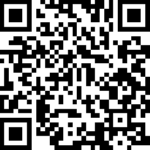North Jersey Grape Camp
Wednesday, August 4th at 4:30 PM
Location:
Alba Vineyard
269 County Road 627
Milford, NJ 08848
The meeting will include a vineyard tour, demonstration of vineyard sprayer technologies, discussion of a number of timely topics including, spotted lanternfly and nematode management, weed identification/management, fertility assessment and pesticide safety updates.
The following New Jersey Pesticide Recertification Credits will be awarded:
1-CORE 5-1A 5-10 5-PP2
Refreshments will be provided.
To register please contact Kim Crommelin, Rutgers Cooperative Extension of Hunterdon County at kfrey@co.hunterdon.nj.us or 908-788-1338.
For any questions and additional assistance contact Hunterdon County Agricultural Agent Megan Muehlbauer muehlbauer@njaes.rutgers.edu.

